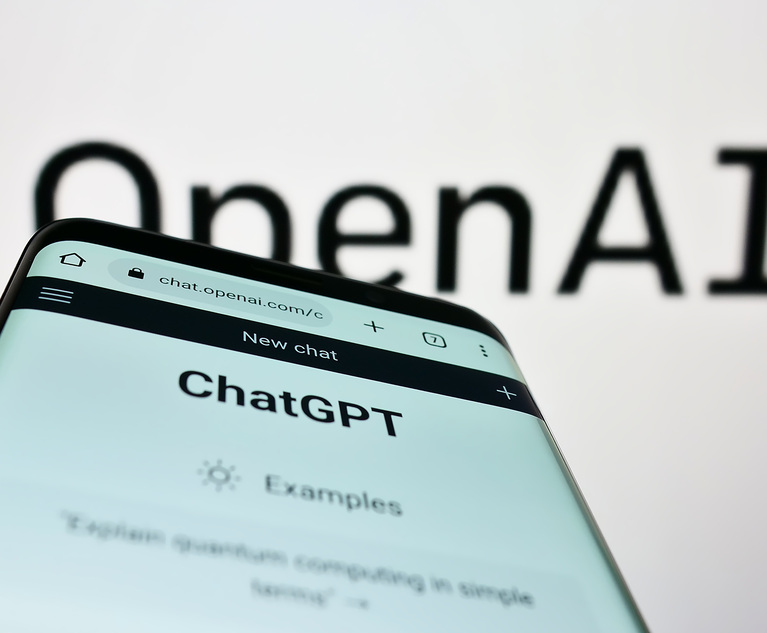The emergence of the use of generative artificial intelligence to draft documents has been front-page news, especially in education, where students have been using AI to write their papers and teachers have been changing their teaching methods to prevent misuse of it.
We are just beginning to see it in the practice of law, with a bizarre early application being the “robot lawyer” to help self-represented parties defend themselves in court. The defendant challenging a speeding ticket appears in court, alone, wearing special “smart” glasses that follow the court proceedings and whisper responses in the ear of the accused. The system, developed by a British citizen, Joshua Browder, the CEO of the startup DoNotPay, based in New York, relies on generative artificial intelligence, including text generators ChatGPT, a chatbot released by OpenAI in November 2022, and DaVinci.
This content has been archived. It is available through our partners, LexisNexis® and Bloomberg Law.
To view this content, please continue to their sites.
Not a Lexis Subscriber?
Subscribe Now
Not a Bloomberg Law Subscriber?
Subscribe Now
LexisNexis® and Bloomberg Law are third party online distributors of the broad collection of current and archived versions of ALM's legal news publications. LexisNexis® and Bloomberg Law customers are able to access and use ALM's content, including content from the National Law Journal, The American Lawyer, Legaltech News, The New York Law Journal, and Corporate Counsel, as well as other sources of legal information.
For questions call 1-877-256-2472 or contact us at [email protected]


 Credit: Timon/Adobe Stock
Credit: Timon/Adobe Stock




